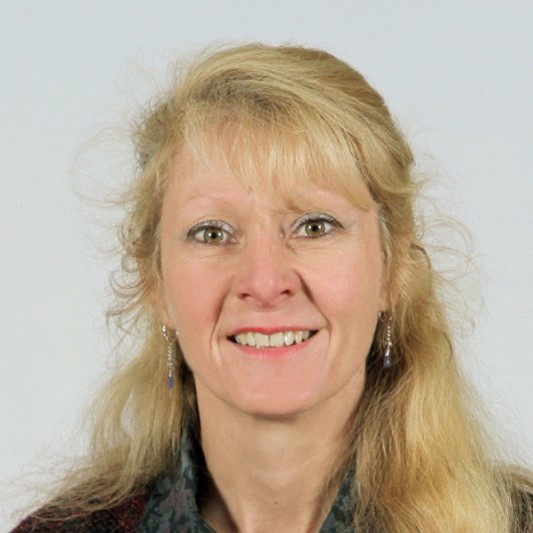
Prof Angela Woodiwiss
University of the Witwatersrand
Speaker: Prof Angela Woodiwiss
Professor Angela Jill Woodiwiss
BSc (Physiotherapy), MSc, PhD (WITS), FAAS, MASSAf, MRSSAf
Angela Woodiwiss is an ad hominem full Professor of Physiology (since 2010); Fellow of the Royal Society of South Africa (MRSSAf); Fellow of the African Academy of Sciences (FAAS); Member of the Academy of Science of South Africa (MASSAf); Fellow of Physiological Society of Southern Africa; past President of the Southern African Hypertension Society; Country Leader for May Measure Month (an international blood pressure screening campaign); Council Member of World Hypertension League; Board Member of Southern African Hypertension Society; and Director: Cardiovascular Pathophysiology and Genomics Research Unit, Department of Physiology, School of Biomedical Sciences, University of the Witwatersrand. She has 241 original publications (mostly in leading international journals); citations=5241 (Scopus) or 8230 (Google scholar); h-index=36 (Scopus) or 48 (Google scholar); i10 index=156; NRF B2 rating; and one of the top 30 publishers at University of the Witwatersrand for the 15year period between 2008 and 2023. Professor Woodiwiss has made substantial contributions toward the training of future researchers, having supervised to completion 49 graduate students (28 PhD and 21 MSc students), and currently supervising 4 PhD and 2 MSc students. In addition, Professor Woodiwiss teaches undergraduate medical, allied medical and science students and as testimony to her impact, was awarded the Philip V. Tobias and Convocation Distinguished Teacher’s Award for Pre-clinical teaching. Professor Woodiwiss’s research interests are in understanding the mechanisms of cardiovascular disease, primarily hypertension and heart failure. Her research uses epidemiological and mechanistic approaches in human subjects, as well as in animal models. Professor Woodiwiss has unraveled the critical role of the non-cross-linked collagen and excluded other factors as mechanisms of cardiac dilatation in heart failure. Professor Woodiwiss established in 2003 the African Program on Genes in Hypertension (APOGH), the first large family-based cross-sectional population study ever conducted in Africa to identify all conventional and novel cardiovascular risk factors in groups of African ancestry. Her research into the genetic basis of hypertension focused on the importance of gene-environment and gene-gene interactive approaches. She presently has special interests in the role of aortic dysfunction as a cause of premature cardiovascular events, the best approaches to risk prediction, and the impact of HIV on the cardiovascular system.

Prof Anitia Lubbe
North-West University
Speaker: Prof Anitia Lubbe

Research Unit Self-Directed Learning,
Centre for Health Professions Education, Faculty of Health Sciences,
North-West University, Potchefstroom, South Africa
Email: anitia.lubbe@nwu.ac.za
ORCID: https://orcid.org/0000-0001-5687-1030
Anitia Lubbe is an Associate Professor at North-West University and subarea leader for Assessment to support Self-Directed Learning in the Research Unit Self-Directed Learning. Her research spans assessment, feedback literacy, cooperative learning, and critical thinking, with a growing focus on the ethical integration of generative AI in higher education. Anitia’s PhD explored assessment to support self-directed learning, and she continues to publish, present, and supervise in this domain. A pragmatist at heart, she is passionate about transforming assessment practices to foster student agency — including through AI-enhanced designs that promote self-directed learning and critical thinking.
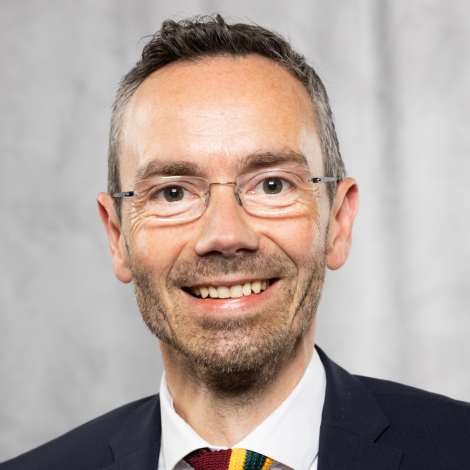
Prof Ben Loos
Stellenbosch University
Speaker: Prof Ben Loos

Ben Loos leads the Neuro Research Group. Over the last 14 years he has sought to gain a better understanding of the role of autophagy activity, i.e., autophagic flux, in the onset of cell death associated with neurodegenerative diseases and gliomas. Ben’s research focus centres around Alzheimer’s disease and neuronal aging, malignant brain tumours, as well as neuronal injury and trauma. To study the dynamics of the onset of cell death he uses various microscopy techniques that allow single cell and tissue analysis with high localization precision and quantitative power. These include molecular/fluorescence imaging techniques such as structured illumination microscopy, quantitative single-molecule imaging approaches such as stochastic optical reconstruction microscopy (STORM) as well as photo-activation- and FRET. A novel control analysis and biophysics approach made it possible to assess the localization and extent of control (as opposed to regulation) of autophagy activity, as well as the quantitative assessment of complex and dynamic intracellular networks formed by tubulin and mitochondria. This approach led to the development of a new methodology to quantify autophagic flux in a more standardized fashion. Recently, correlative light and electron microscopy (CLEM), light sheet microscopy and CLARITY have been implemented, to allow for enhanced translation using pre-clinical spheroid models and rodent brain tissue. His research is anchored in strong collaborative activities with electrical/electronic engineering, which has led to four patents associated with an autophagy sensing device, as well as virtual reality guided 3-dimensional precision analysis and mitochondrial dynamics software tools. The spinout company ‘Phagoflux’ that was established in 2020 aims to develop autophagy sensing tools for the research, pharma, diagnostics and wellness market. Currently, Ben is the chair of the department of Physiological Sciences, at Stellenbosch University.
Publications: 91 peer-reviewed articles, Google Scholar H-index 37
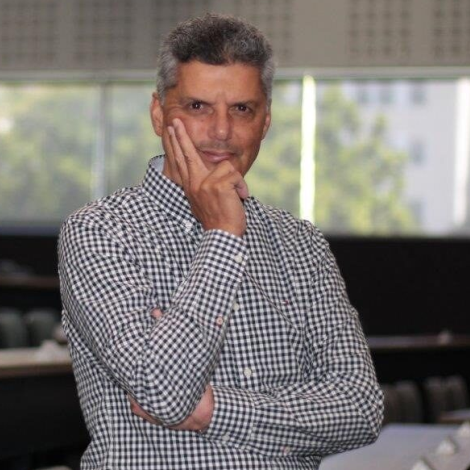
Prof Faadiel Essop
Stellenbosch University
Speaker: Prof Faadiel Essop

Prof. Faadiel Essop short biography
Affiliation: Centre for Cardio-metabolic Research in Africa (CARMA), Division of Medical Physiology, Biomedical Research Institute (BMRI), Faculty of Medicine and Health Sciences,
Stellenbosch University, Cape Town, South Africa.
Phone numbers: +27 21 9389388 and +27 76 901 9474
Email address: mfessop@sun.ac.za
Prof. Faadiel Essop is a professor and director of the Centre for Cardio-metabolic Research in Africa at Stellenbosch University’s medical school. He completed his undergraduate and
doctoral studies at the University of Cape Town, and thereafter a BA (Hons) degree (Arabic Studies) at the University of the Western Cape. He was awarded the Chevening Fellowship
(Leeds, UK) and was a Fulbright Fellow at the University of Texas-Houston Medical School. Prof. Essop is an NRF-rated internationally acclaimed researcher and is investigating the effects of chronic stress on human health. He was a recipient of the university’s teaching excellence award (twice) and is a Teaching Advancement at University (TAU) fellow. Prof. Essop was former Presidents of the Physiology Society of Southern Africa (PSSA) and the African Association of Physiological Sciences, and previous chairperson of the Research Advisory Committee of the SA Heart and Stroke Foundation. He is currently an elected council member of the International Union of Physiological Sciences. He is also a Fellow of the American Physiological Society and was awarded the PSSA’s prestigious Lifetime Career Achievement Award for research excellence. Prof. Essop was elected as a Fellow of the Ro yal Society of South Africa in 2023 and was recently awarded the prestigious TAU Fellow award for his innovation in curriculum development, inter-disciplinary work, and holistic student training in the medical field.
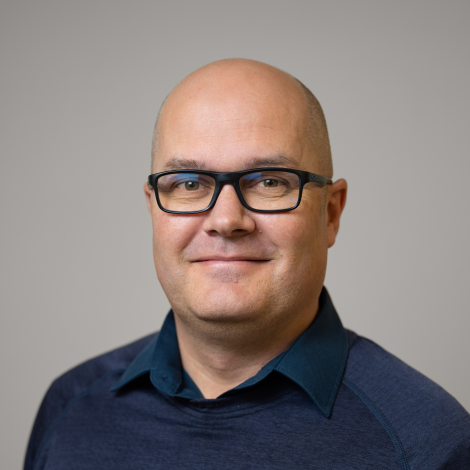
Prof Johan du Plessis
North-West University
Speaker: Prof Johan du Plessis

Prof Johan L du Plessis
He holds BSc (Biological Sciences), BSc Hons (Physiology), MSc (Physiology) and PhD (Occupational Hygiene) degrees. He is currently appointed as Professor and Director of the Occupational Hygiene and Health Research Initiative (OHHRI) at the North-West University. He first taught Physiology to undergraduate students in 1997, and to postgraduate students since 2004. He has successfully supervised 50 master’s and doctoral students in primarily occupational hygiene, authored 73 articles in international and national journals, authored 5 chapters in books and delivered 110 presentations at international and national conferences. He serves as reviewer for numerous journals and is an Editorial Board member of the Occupational Health Southern Africa journal.
His research focus and expertise are on exposure to primarily chemical stressors in the workplace. This includes assessing the potential risk of exposure, assessing actual levels of skin and respiratory exposure and controlling the level of exposure.
He holds a South African National Research Foundation’s C2 (established researcher) rating. He is a registered Occupational Hygiene Technologist with the Southern African Institute for Occupational Hygiene, a member of the American Conference for Governmental Industrial Hygienists, the International Commission on Occupational Health, and the Toxicology Society of South Africa.
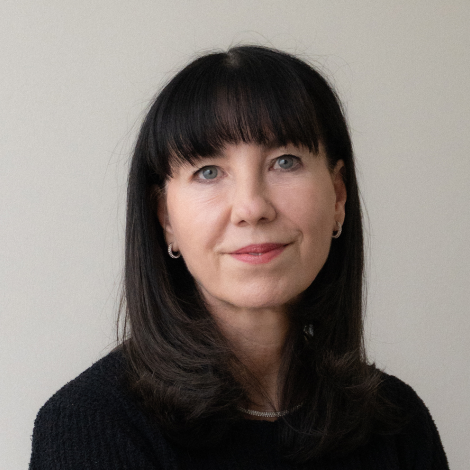
Prof Resia Pretorius
Stellenbosch University
Speaker: Prof Resia Pretorius

Resia Pretorius (PhD) is a Distinguished Professor at Stellenbosch University (South Africa), Honorary Professor at the University of Liverpool (UK) and a founding director of Biocode Technologies, a Stellenbosch University start-up company. She has advanced the field of coagulation system pathophysiology, by studying the interactions of inflammatory molecules with clotting proteins, platelets, erythrocytes and endothelial cells. Since 2000, she has published and in press, 334 papers, and in collaboration with Stellenbosch University, she has filed various patents related to methods for the early detection of inflammatory disease risk and for the diagnosis of coagulation pathology in Long COVID and inflammatory diseases. She is actively involved in global health initiatives, including the World Health Network (WHN), and serves on the scientific advisory board of Phys2biomed in Italy, and is a scientific advisor of the Long COVID Foundation in Leeds, UK (https://longcovidfdn.com/). She has also been a member of WHO panels in 2021, 2022 and 2024 (ongoing), that aimed to expand the understanding of post-COVID-19 conditions.
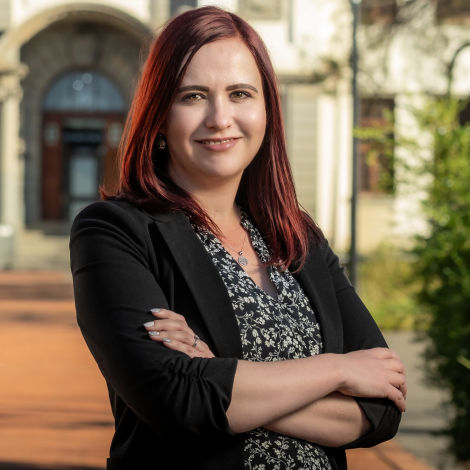
Dr Angélique Lewies
University of the Free State
Speaker: Dr Angélique Lewies

Dr Angélique Lewies is a Senior Lecturer at the Robert WM Frater Cardiovascular Research Centre at the University of the Free State. She holds a PhD in Pharmaceutics and an MSc in Biochemistry (specialising in Molecular and Cell Biology) from North-West University and has extensive expertise in cell culture techniques.
Her research spans pharmaceutical formulations, antibiotic and chemotherapy resistance, cytotoxicity, drug efficacy, and interaction studies. Her current focus is on tissue engineering, regenerative medicine, and 3D cell culture systems (organoids and spheroids) for drug development. She is particularly interested in cardio-oncology, with emphasis on drug resistance and cardiotoxicity associated with chemotherapy drugs.
Dr Lewies is a National Research Foundation (NRF) Y-rated researcher and is registered as a Professional Natural Scientist with the South African Council for Natural Scientific Professions (SACNASP).
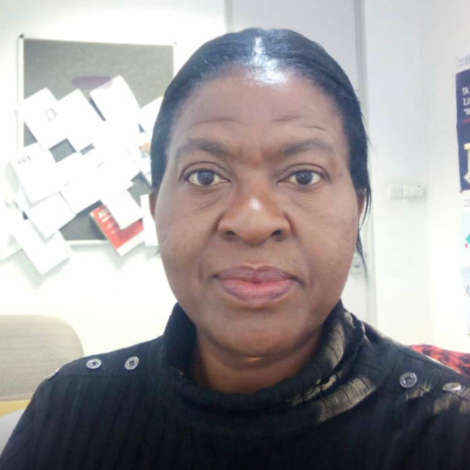
Dr Keneilwe MMopi
University of Botswana
Speaker: Dr Keneilwe MMopi

Dr Keneilwe N. Mmopi is a cardiovascular physiologist with extensive experience in teaching Human Physiology at tertiary institutions in Botswana. She has a PhD in Cardiovascular Physiology, and MSc in Exercise and Sport Science, and a Diploma in Human Resources Management. She is a senior lecturer for Human Physiology in the Faculty of Medicine at the University of Botswana. In 2023, she was honoured to be chosen for the distinguished World Heart Federation Salim Yusuf Emerging Leaders programme.In 2024 she was in the WHF inaugural cohort trained in the Leadership in Advocacy and Communication Programme. Her research interests include pathophysiology of hypertension, blood pressure variability, and use of digital technology for hypertension management. She contributed towards the 2024 International Society of Hypertension Position Paper on Innovations in Blood Pressure Measurement and Reporting Technology. She has been involved in the May Measurement Month community hypertension awareness campaigns in Botswana since 2023. She is serving in the International Society of Hypertension Membership Committee. She is a recipient of the Africa Research Excellence Fund Research Development Fellowship for 2024/25. She is also a 2024 fellow for the International Society of Cardiovascular Epidemiology and Prevention Ten-Day Teaching Seminar.
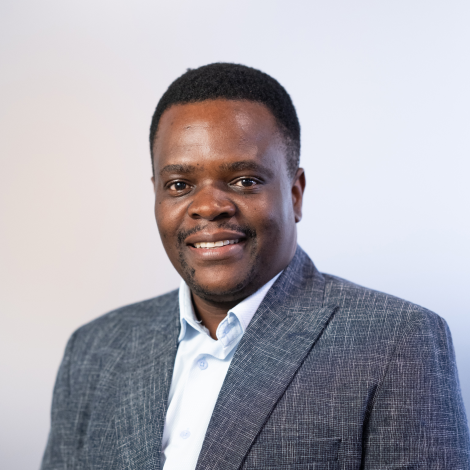
Prof Trevor Nyakudya
University of Pretoria
Speaker: Prof Trevor Nyakudya

Professor Trevor Nyakudya is a full professor of Physiology at the University of Pretoria and a C2-rated researcher with the National Research Foundation. He is internationally recognised for his pioneering work on phytomedicine-based interventions for metabolic disorders such as diabetes and obesity. Motivated by the need for sustainable and accessible healthcare solutions, his research investigates the therapeutic potential of indigenous South African medicinal plants and their phytochemicals as complementary or alternative strategies to conventional pharmacotherapies. Using integrative molecular and physiological approaches in both neonatal and adult animal models, his team has demonstrated how chosen phytomedicines and phytochemicals can enhance metabolic health and counteract key pathophysiological drivers of metabolic dysfunction.His work affirms the scientific relevance of ethnomedicine, contributes to the bioeconomy, and bridges traditional knowledge systems with modern biomedical science. Professor Nyakudya is a recipient of the Gauteng Accelerator Program Award and currently serves on the Education Committee and African Mentorship Taskforce of the International Union of Physiological Sciences. He is also Treasurer of the African Association of Physiological Societies. He actively promotes physiology education globally, holds membership in several national and international scientific societies, has published extensively in peer-reviewed journals, and has successfully supervised numerous MSc and PhD students.

Prof Carina Mels
North-West University
Speaker: Prof Carina Mels

Carina Mels is full-time Research Professor and Director of the Hypertension in Africa Research Team (HART) at the North-West University (NWU), South Africa. She has authored over 100 peer-reviewed publications and has supervised more than 30 master’s and PhD students. Notably, two of her students have received the prestigious Vice-Chancellor’s Medal for the most outstanding master’s student in the Faculty of Health Sciences.
Since 2022, she has held a C2 rating from the National Research Foundation (NRF), recognizing her as an established researcher. She is the local Principal Investigator for two major studies: the African Prospective study on the Early Detection and Identification of Cardiovascular disease and Hypertension (African-PREDICT) and the Prospective Effect of COVID-19 on Early cardiovascular disEase Development in Africans (PRECEED-Africa). Both projects have secured funding through the South African Medical Research Council’s self-initiated research program and the NRF’s competitive support for rated researchers (2022–2024).
Prof. Mels plays an active role in national research capacity building through the NRF’s mentorship program, supporting the development of early-career scientists. She serves on the Board of Directors and the Next Generation Committee of the Southern African Hypertension Society (SAHS). As a Professional member of the International Society of Hypertension (ISH), she formerly served on the African Regional Advisory Group, which aimed to alleviate the burden of hypertension across the African continent. Additionally, she serves on the Editorial Board of the journal Metabolomics.
With a background in biochemistry and physiology, her research focuses on using proteomics and metabolomics to detect early molecular changes linked to cardiovascular disease development. Looking ahead, she aims to identify novel biomarkers for the early, preclinical detection of cardiovascular conditions—laying the groundwork for precision medicine approaches to prevent hypertension and related diseases over the next two decades.
